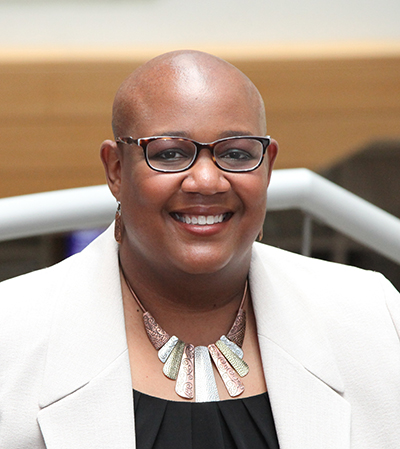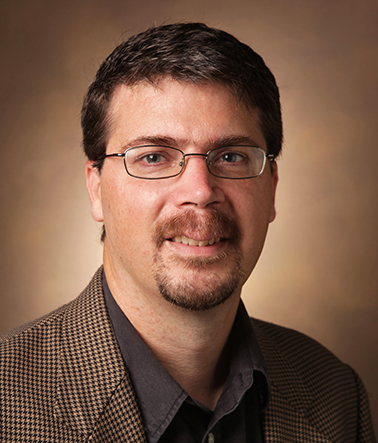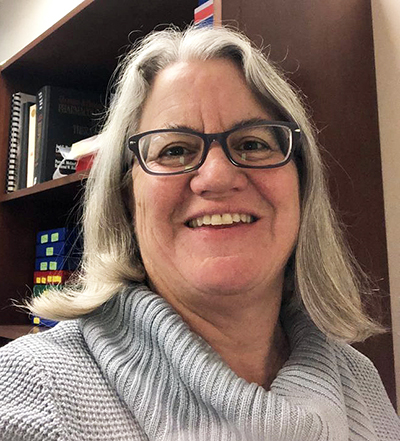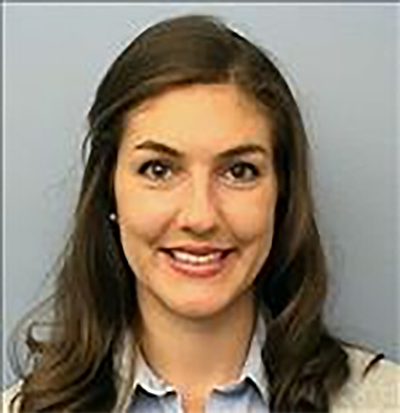By Aran Sullivan

During February—Black History Month—Basic Sciences community members participated in a 21-day Racial Equity Challenge. Felysha Jenkins, the Basic Sciences diversity, equity, and inclusion program manager, organized the challenge for the Basic Sciences community, using resources from the Debby Irving 21-Day Racial Equity Habit Building Challenge©. The challenge provides resources to help participants develop a habit of educating themselves daily about racial equity in the United States.
“I was very glad that people participated in the challenge and were able to learn at their own pace,” said Jenkins.

Ann Richmond’s lab won the group award.
We talked to the winners of the Basic Sciences challenge—those who participated in the highest number of activities or whose lab had the highest rate of individual participation—to see what they learned. Although the people interviewed for this piece all have different backgrounds, careers, and lives, they all spoke about the importance of what they learned. “I really appreciated the level of education I got from this challenge,” said Becky Brandt, a staff scientist in the Richmond lab. “I was impressed by the intensity of some of the conversations we were able to have because of the materials.”

That was another goal of the challenge: to spark conversation both within and outside of the labs that participated. “It’s important to recognize that we have to meet people where they are, but also push a little bit,” said Caroline Nebhan, a clinical fellow in the Richmond lab.
Davies, Brandt, and Nebhan all sent materials to family and friends outside the lab as well. “A cool part of this program is that there was really something for everybody,” said Nebhan. Davies agreed and added that “There were things that really helped me expand my understanding of different perspectives, and then there were pieces that were more directed action items of how to be an ally.”

The consensus surrounding the importance of the challenge was also unanimous. “I am personally a clinician and I see patients of all backgrounds, so it is really important for me to understand where people are coming from. I think it is doubly important for me as a citizen of the United States and as a doctor as well,” said Nebhan. Brandt added that “The smaller things that are constantly bringing these issues up, like this challenge, are the things that are really helping us to move forward.”
Brandt and Nebhan agreed that they want to implement more aspects of this challenge into their daily routine. “I think the biggest thing I will take away is just an interest in continuing to do things like this and seek out this information,” said Nebhan. “I really appreciated the fact that it was a little snippet every day because it reminded me that I do have the time to take 10 minutes out of my day to read an article I might have glanced over before this challenge. This challenge was an educational routine that was really eye opening.”
Davies said he wants to be more proactive, both in seeking out educational resources and in the workplace. “To whatever extent I am involved in hiring decisions or inviting speakers or just day-to-day, I think it is important to be more aware and more proactive,” he said. “It is also important to recognize how events impact us differently and the privileges associated with that. So, check in on colleagues, give them support but also space. It can’t be a one-time thing of doing a 21-day challenge and suddenly you know everything. It needs to be a constant thing.”
Davies continued: “When do communities look the best? When is science at its best? It’s when everyone who can be involved is involved and is able to contribute to the best of their ability. Historically, we denied people the opportunities to participate and stole their labor and land. That robs us of innovation and the amazing communities that we could have had both within and outside of the scientific community.”
Brandt, Nebhan, and Davies are all eager to continue these discussions. “I hope to see more things like this from Vanderbilt soon because I thought it was really effective, even on a micro-level, to have these discussions on a more regular basis,” said Nebhan as Brandt nodded in agreement.
For Jenkins, the experiment was a success. “I think having a self-led challenge where people were then able to talk with each other and engage in discussions was effective for us,” she said.
“Having more opportunities to discuss these things, whether it’s within a lab or within departments, will help make Vanderbilt a better place,” said Davies.
If you want to learn more about the 21-day Racial Equity Habit Building Challenge©, it is available online at https://www.debbyirving.com/21-day-challenge-flagship/.